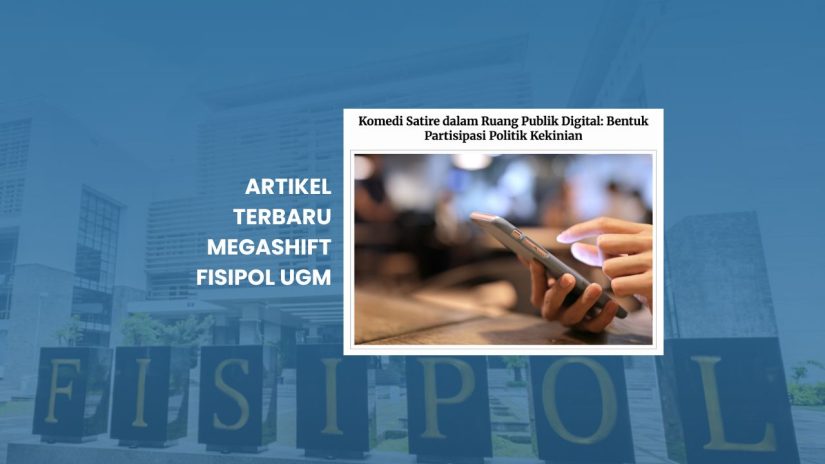
New Release: Megashift FISIPOL UGM Article
“Satirical Comedy in the Digital Public Sphere: A Contemporary Form of Political Participation”
By: Ardi Muhammad Rifqi
____________________
Megashift FISIPOL UGM has published a fresh article exploring how satirical comedy on social media has become a creative and powerful form of political participation in today’s digital era. Written by Ardi Muhammad Rifqi, the article dissects how humor, memes, and stand-up comedy content are reshaping political discourse in Indonesia.
The article highlights three main drivers behind the rise of satire: the accessibility of social media platforms, the growing popularity of stand-up comedy, and restrictions on free expression under regulations like the ITE Law. Within this context, satire emerges as a safe yet sharp tool for citizens to voice criticism and hold political actors accountable.
Real-life cases illustrate its impact: comedian Bintang Emon’s viral critique of parliament’s plan to purchase luxury curtains, and massive online satire responding to the proposed VAT increase to 12%. Both cases demonstrate how satire can trigger broad public debate and even influence government decisions—a phenomenon the article describes as viral-based policy.
What makes this piece particularly compelling is its focus on digital citizenship. Satire encourages citizens to creatively engage in political discourse, monitor policy decisions, and push for public advocacy. By turning heavy political debates into accessible, humorous content, satire not only entertains but also educates, mobilizes, and strengthens democratic participation.
As part of the global development agenda, this article also connects with the Sustainable Development Goals (SDGs):
-
SDG 16 (Peace, Justice, and Strong Institutions): satire strengthens accountability and citizen participation in governance.
-
SDG 10 (Reduced Inequalities): digital platforms make political participation more inclusive and accessible.
-
SDG 4 (Quality Education): satirical content helps improve public political literacy in a popular and creative way.
